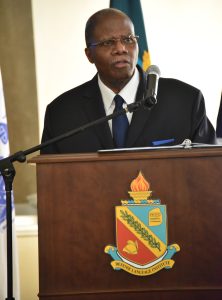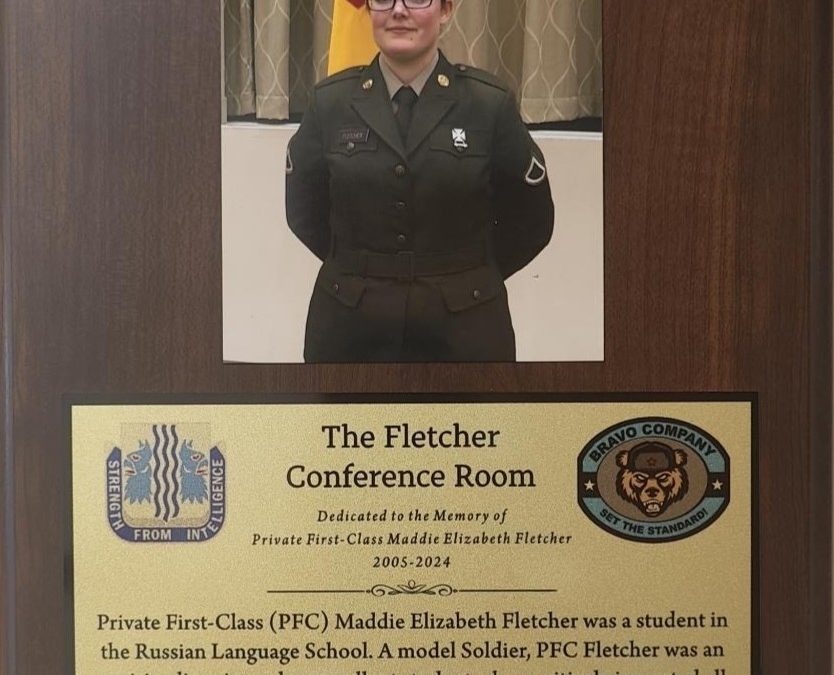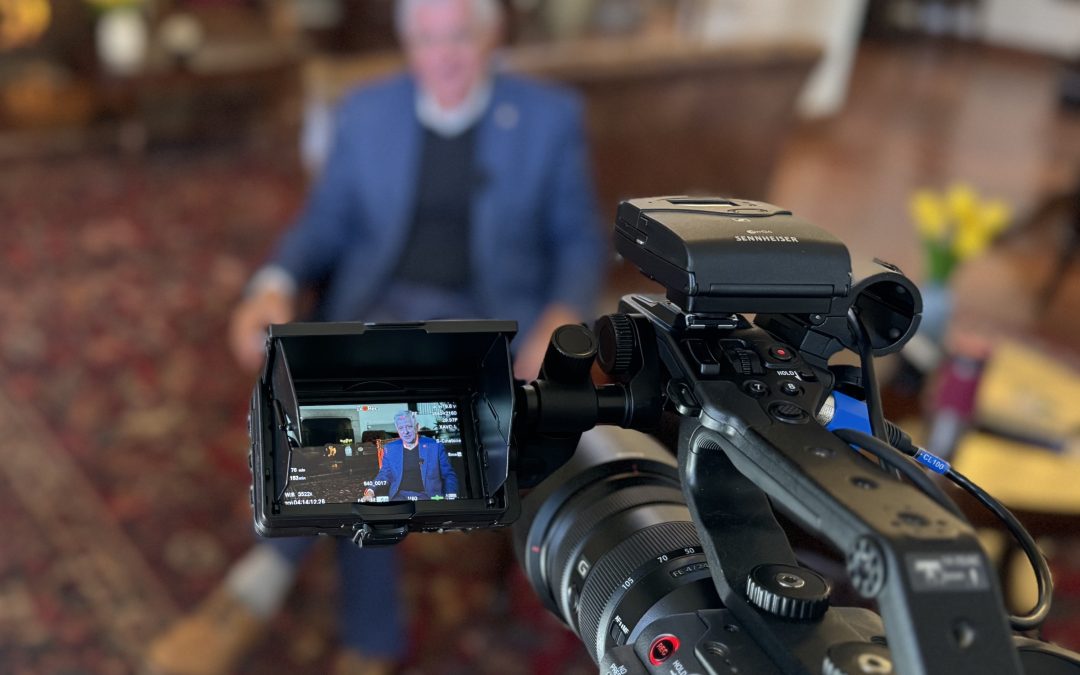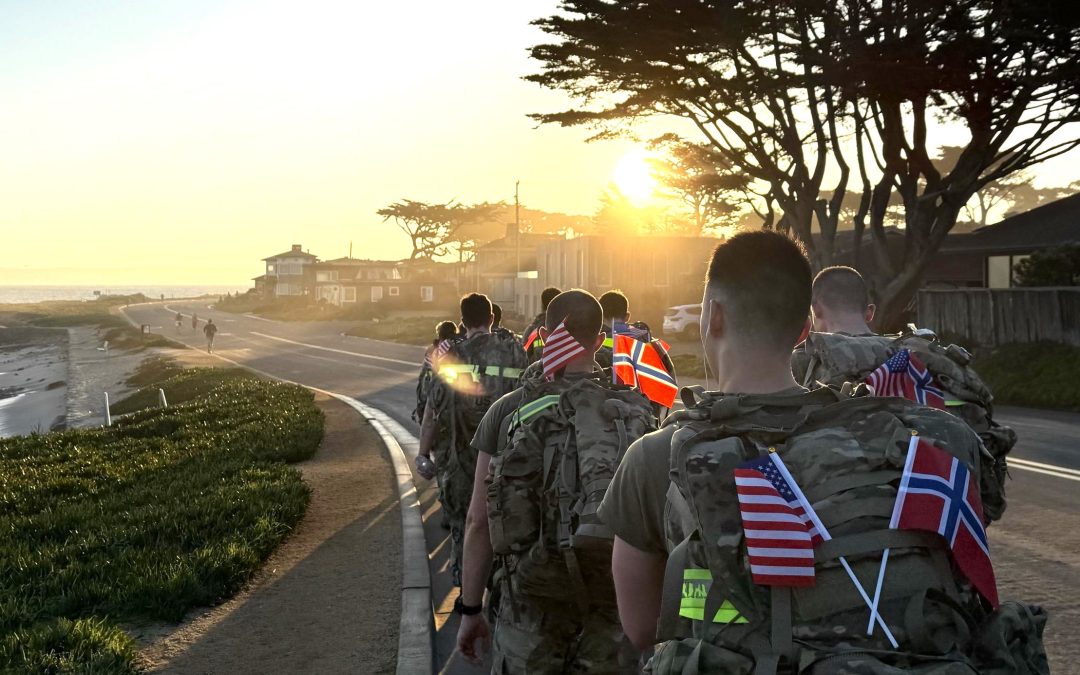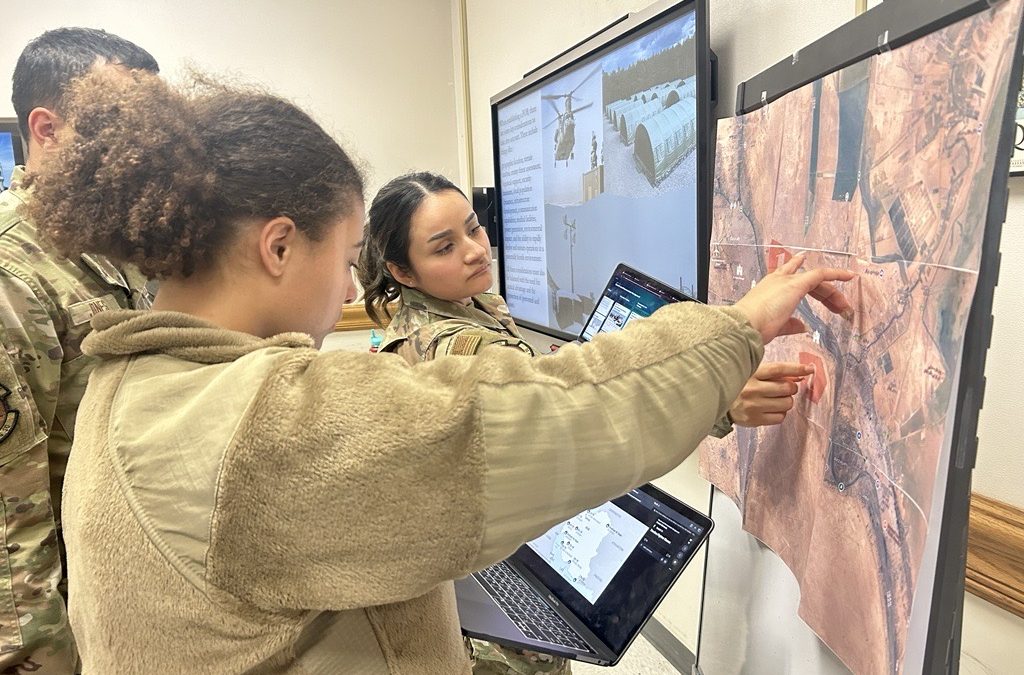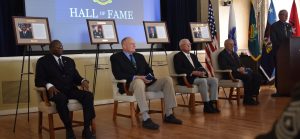
2023 Inductees of the DLIFLC Hall of Fame (left to right): Under Secretary of Defense for Intelligence and Security, the Honorable Ronald S. Moultrie, retired Lt. Gen. Eric Wendt, U.S. Army, Mr. Craig L. Wilson and Mr. Ronald Thorp.
While fame may be fleeting for most, at the Defense Language Institute Foreign Language Center, the Hall of Fame pays homage to those individuals who have indelibly influenced foreign language training, military linguists, public service and international diplomacy with notable professional achievements.
“There are linguists every day who are providing information to President [Joe] Biden,” stated Under Secretary of Defense for Intelligence and Security, the Honorable Ronald S. Moultrie, one of the four inductees being honored at the ceremony Nov. 3. “That’s really making a difference.”
Moultrie rose from a U.S. Air Force Russian linguist to become the undersecretary of defense for intelligence and security where he advocates for foreign language proficiency, diversity and equity in the Intelligence Community’s language cadre.
Emphasizing the vital role of language in national security and its significance in providing information and intelligence in both peacetime and conflict, Moultrie recalled the events of last year regarding Russia and the Ukraine, as well as current hostilities between Israel and Hamas.
“Our goal as intelligence professionals is to prevent conflicts. Intel only makes a difference because of language and that all starts here with DLIFLC.”
Moultrie was joined by three other distinguished inductees in this esteemed recognition.
“It’s an honor and a joy as a two-time student and advocate of DLI for many years in the past, and it will continue to be my honor to do so,” said retired Lt. Gen. Eric Wendt, U.S. Army. Throughout his 34-year military career, Wendt consistently championed foreign language proficiency, cultural awareness and innovative education as vital components of military readiness and success.
Mr. Craig L. Wilson, a stalwart guardian of DLIFLC for over two decades, played a pivotal role in safeguarding and expanding the language program, securing substantial funding increases and ensuring its longevity during critical junctures, while also co-authoring key directives and legislation to enhance its effectiveness.
“You give me the cost of one tank for intelligence training I’ll show you the benefit,” Wilson had promised one of the Capitol Hill naysayers. “I feel the same way about foreign language. If your tank doesn’t know where to go or who it’s fighting, what good is the tank?”
Ronald Thorp accepted on behalf of his late great-uncle, Brig. Gen. Elliott R. Thorpe, U.S. Army, a distinguished military figure known for his remarkable legacy as an intelligence operative and foreign language advocate. Thorpe’s early warning about Japan’s Pearl Harbor attack plans in 1941 and his forethought as the third commandant to introduce multi-language training into the Military Intelligence Service Language School after the events of WWII, still impact DLIFLC to this day.
“General Thorpe was part of the era when men and women sacrificed to do their part serving our nation,” recanted Thorp. “They were the greatest generation. And I salute all members of this staff for making [DLIFLC] a model program.”
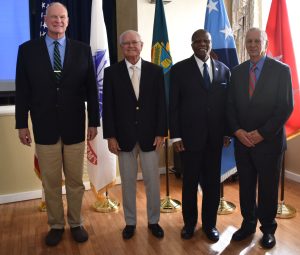
The inductees: retired Lt. Gen. Eric Wendt, U.S. Army, Mr. Craig L. Wilson, the Honorable Ronald S. Moultrie and Mr. Ronald Thorp.
The distinguished inductees, whose exceptional achievements consistently set them apart, credit their success to prioritizing foreign language as a cornerstone of military and civil service training. Their steadfast commitment to linguistic excellence underscores the crucial role of language in shaping accomplishments in these fields, which extends beyond personal successes to benefit their organizations and institutions, ultimately contributing to the successful security of the nation.
“And what I always say is probably the most successful conflict that we have ever seen are the ones that never happened,” Moultrie said. “That’s the greatest success that we can have. We have those successes every day.”

